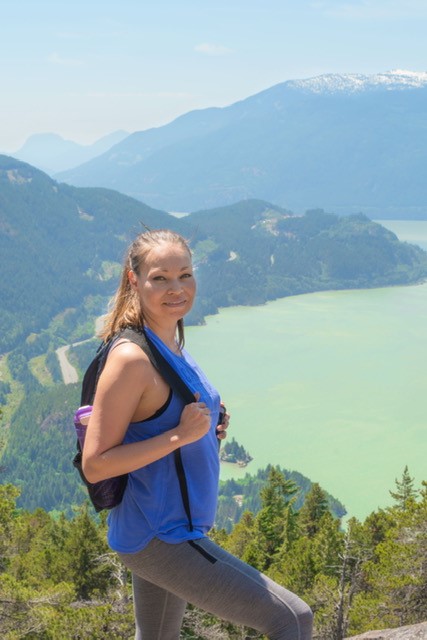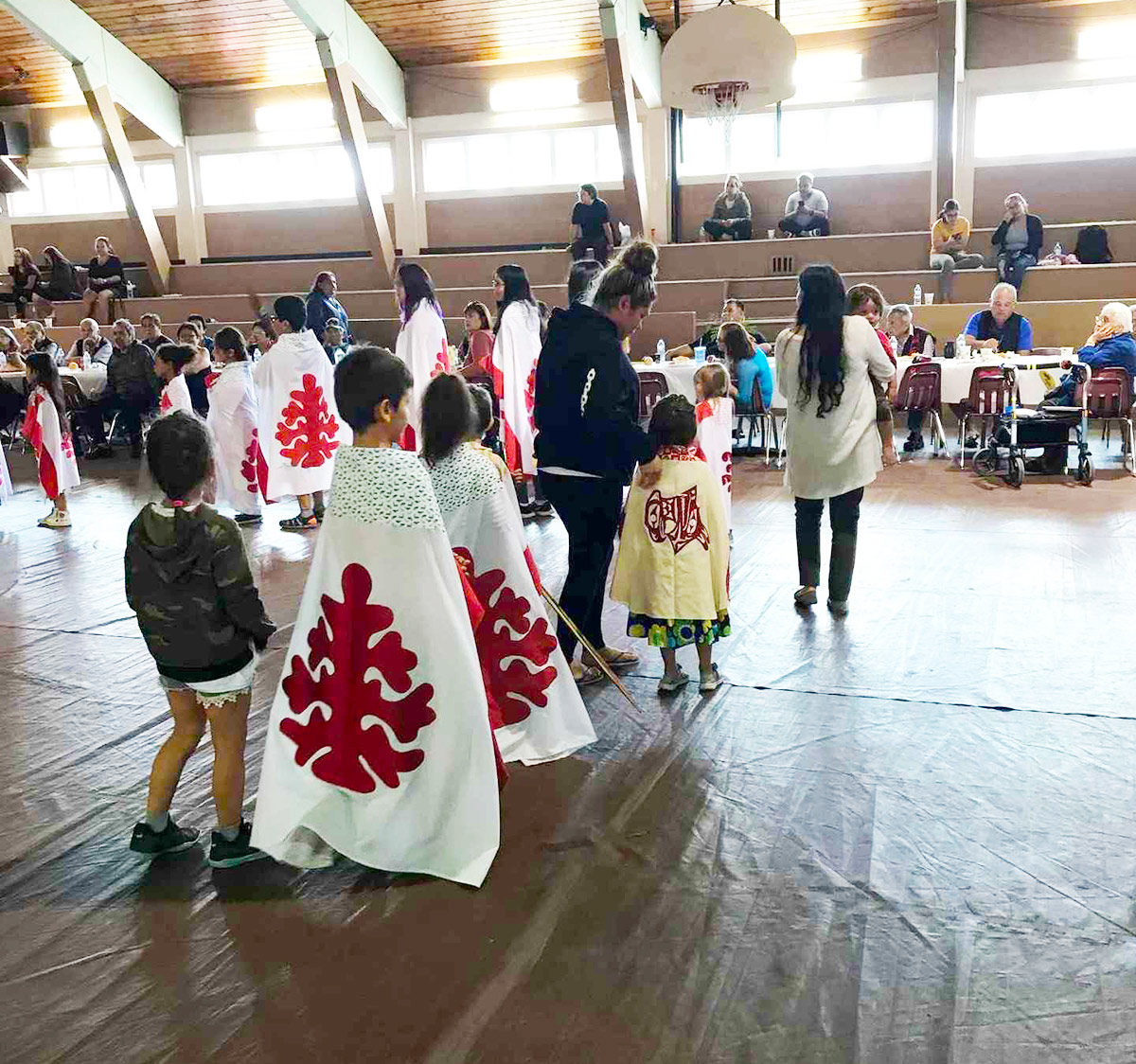Leanne’s role is one of a kind in a delegated aboriginal agency and crucial in helping establish connections between a child in care and their family and community.
What is your name and background?
My name is Leanne Dales and I am Coast Salish of the Lyackson First Nation from my maternal side and carry English ancestry from my paternal lineage. I also have matrilineal kinship ties to Songhees First Nation and Squamish First Nation, through both my grandmother and great grandmother as well.
How many years have you been with the agency?
I have worked with VACFSS since September 2010.
Our families are the experts of their own lives, and we as workers are here to help them in their journey by facilitating opportunities for them to meet their needs.
Relevant industry experience/accomplishments?
I started working at VACFSS as a Guardianship Social Worker. Throughout my time, I’ve witnessed the agency provide endless opportunities to support Indigenous families, children and their communities. The one aspect that brings me the most pride in my work has been the opportunity to work collaboratively with children and their families from a cultural understanding and respect to uplift one another. There is a tendency for some people to believe that social workers carry all the responsibilities and knowledge, but that is not the case. Our families are the experts of their own lives, and we as workers are here to help them in their journey by facilitating opportunities for them to meet their needs. For me, being a witness to the resilience and determination has certainly humbled my outlook on life. I have built lifelong relationships with children who have aged into community, and that’s one of my biggest accomplishments at VACFSS. I never felt my job was confined within a system or time-frame to work along-side with the families I have had a tremendous privilege to work with. Thus, enabling me to see the value in relational based social work and an opportunity to build genuine relationships.
What brought you to VACFSS?
I came to VACFSS with the hope that I could work from a diverse cultural approach to support Indigenous families in a strength-based way and restorative way. VACFSS did not fail that desire. I am proud to work for an agency that creates space for employees to be creative and flexible to ensure families stay connected and gain the necessary supports for personal growth. It’s a very safe and supportive environment for both staff and the families served, which is what has kept me here for over ten years.
I work in collaboration with our children’s communities to introduce children to their roots and develop pride in knowing their true authentic identity.
What is your role at VACFSS?
I have been the Lifelong Connections Coordinator since 2013
What is your “specialty” in your role?
My specialty is building relationships and making arrangements to connect children and youth in care to their family and communities. I work in collaboration with our children’s communities to introduce children to their roots and develop pride in knowing their true authentic identity.


What is challenging about your role?
Seeing children impacted by adverse circumstances and intergenerational affect as a result of colonization and forced assimilation, such as residential school, and the sixty’s scoop, including trauma, disability, mental illness, poverty, and lack of family and community connections. No one ever wants to see a child suffer.
We take great pride in our youth who voice their experiences of our care system and take responsibility to make changes that have impacted them.
What have you seen change over your time here?
Strengthening of children’s voices. VACFSS’ Youth Advisory Committee has had a huge impact on our practice not only at VACFSS, but on an international level. We take great pride in our youth who voice their experiences of our care system and take responsibility to make changes that have impacted them. They work closely with social workers, peers, and policy makers to implement changes in policy holding our practice accountable to make changes for the betterment of future children and youth in care. These youth are creating a pathway to make space for children to voice their rights and make systematic changes for future generations.
There is nothing more warming than seeing children comfortable in their “own skin” within their communities breaking away from being shy and unsure. That is what we call “identity”.
What is a favourite memory of working here?
Seeing children ground themselves on the lands of their Ancestors. My highlights stem from Homecomings that introduce children to their clan systems and meet extended family members for the first time. Then, returning trips to their communities and seeing community members recognize the children and greeting them with hugs, big smiles and laughter. There is nothing more warming than seeing children comfortable in their “own skin” within their communities breaking away from being shy and unsure. That is what we call “identity”. Homecomings have provided children the opportunity to take pride in their traditions of who they are and gain that sense of belonging.
What do you do outside of work?
Spending time with friends and family brings me the most joy. There is nothing more ‘soothing to the soul’ than laughter and experiencing connection with others for me. I have always been athletic and still join as many slow pitch teams as possible during the spring and summer months. I ground myself in our Coast Salish forests to fill my spiritual and mental well-being.











